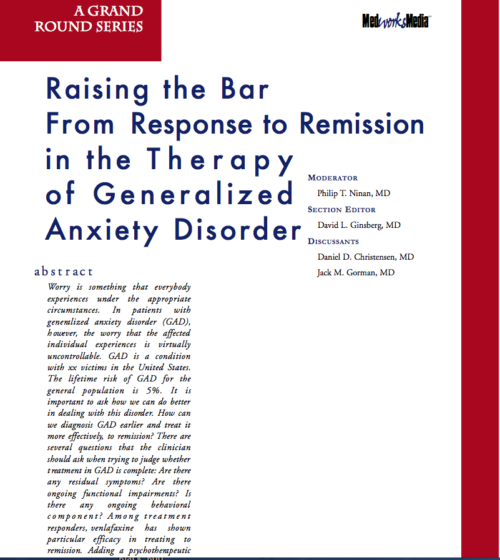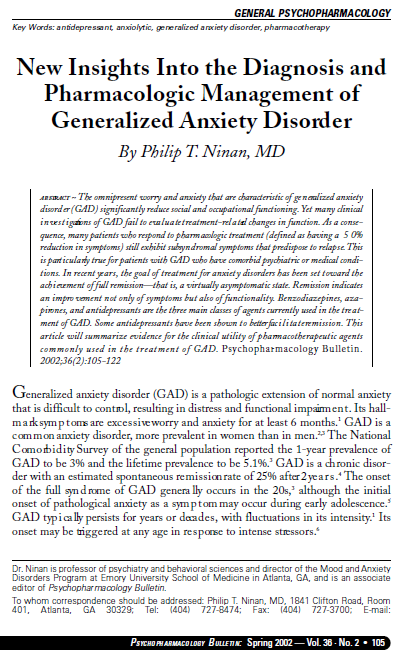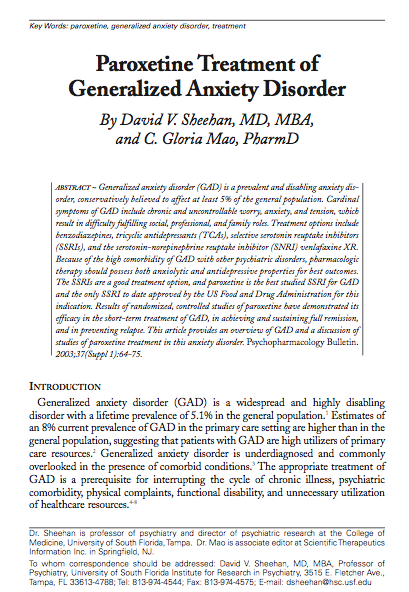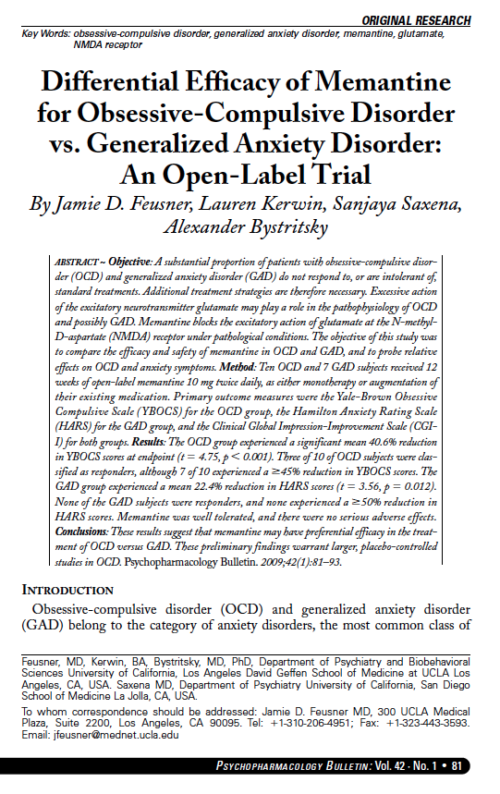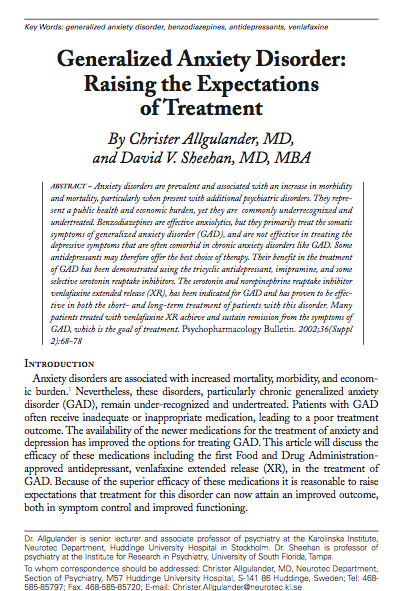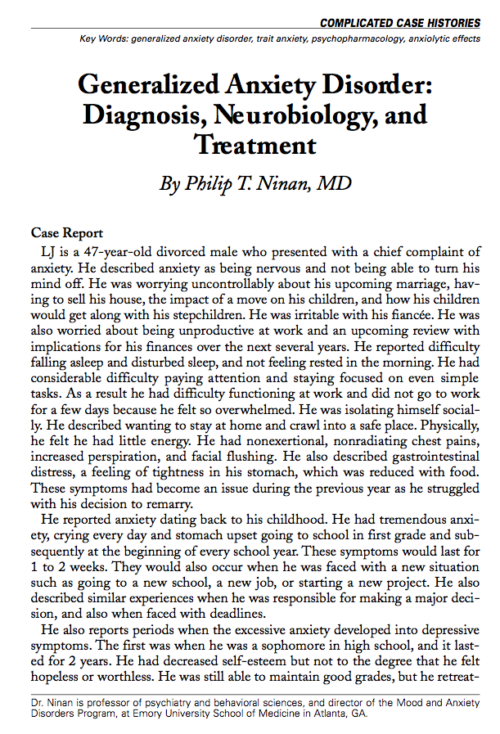Generalized Anxiety Disorder
It’s normal to feel anxious from time to time, especially if your life is stressful. However, excessive, ongoing anxiety and worry that interfere with day-to-day activities may be a sign of generalized anxiety disorder.
It’s possible to develop generalized anxiety disorder as a child or an adult. Generalized anxiety disorder has symptoms that are similar to panic disorder, obsessive-compulsive disorder and other types of anxiety, but they’re all different conditions.
Living with generalized anxiety disorder can be a long-term challenge. In many cases, it occurs along with other anxiety or mood disorders. In most cases, generalized anxiety disorder improves with medications or talk therapy (psychotherapy). Making lifestyle changes, learning coping skills and using relaxation techniques also can help.

Generalized anxiety disorder symptoms can vary. They may include:
- Persistent worrying or obsession about small or large concerns that’s out of proportion to the impact of the event
- Inability to set aside or let go of a worry
- Inability to relax, restlessness, and feeling keyed up or on edge
- Difficulty concentrating, or the feeling that your mind “goes blank”
- Worrying about excessively worrying
- Distress about making decisions for fear of making the wrong decision
- Carrying every option in a situation all the way out to its possible negative conclusion
- Difficulty handling uncertainty or indecisiveness
Physical signs and symptoms may include:
- Fatigue
- Irritability
- Muscle tension or muscle aches
- Trembling, feeling twitchy
- Being easily startled
- Trouble sleeping
- Sweating
- Nausea, diarrhea or irritable bowel syndrome
- Headaches
There may be times when your worries don’t completely consume you, but you still feel anxious even when there’s no apparent reason. For example, you may feel intense worry about your safety or that of your loved ones, or you may have a general sense that something bad is about to happen.
Your anxiety, worry or physical symptoms cause you significant distress in social, work or other areas of your life. Worries can shift from one concern to another and may change with time and age.
Symptoms in children and teenagers
In addition to the symptoms above, children and teenagers who have generalized anxiety disorder may have excessive worries about:
- Performance at school or sporting events
- Being on time (punctuality)
- Earthquakes, nuclear war or other catastrophic events
A child or teen with generalized anxiety disorder may also:
- Feel overly anxious to fit in
- Be a perfectionist
- Redo tasks because they aren’t perfect the first time
- Spend excessive time doing homework
- Lack confidence
- Strive for approval
- Require a lot of reassurance about performance
When to see a doctor
Some anxiety is normal, but see your doctor if:
- You feel like you’re worrying too much, and it’s interfering with your work, relationships or other parts of your life
- You feel depressed, have trouble with drinking or drugs, or you have other mental health concerns along with anxiety
- You have suicidal thoughts or behaviors — seek emergency treatment immediately
Your worries are unlikely to simply go away on their own, and they may actually get worse over time. Try to seek professional help before your anxiety becomes severe — it may be easier to treat early on.
GAD Medications
Several types of medications are used to treat generalized anxiety disorder, including those below. Talk with your doctor about benefits, risks and possible side effects.
Antidepressants. Antidepressants, including medications in the selective serotonin reuptake inhibitor (SSRI) and serotonin norepinephrine reuptake inhibitor (SNRI) classes, are the first-line medication treatments. Examples of antidepressants used to treat anxiety disorders include escitalopram (Lexapro), duloxetine (Cymbalta), venlafaxine (Effexor XR) and paroxetine (Paxil, Pexeva). Your doctor also may recommend other antidepressants.
Buspirone. An anti-anxiety medication called buspirone may be used on an ongoing basis. As with most antidepressants, it typically takes up to several weeks to become fully effective.
Benzodiazepines. In limited circumstances, your doctor may prescribe one of these sedatives for relief of anxiety symptoms. Examples include alprazolam (Niravam, Xanax), chlordiazepoxide (Librium), diazepam (Valium) and lorazepam (Ativan). Benzodiazepines are generally used only for relieving acute anxiety on a short-term basis. Because they can be habit-forming, these medications aren’t a good choice if you’ve had problems with alcohol or drug abuse.



